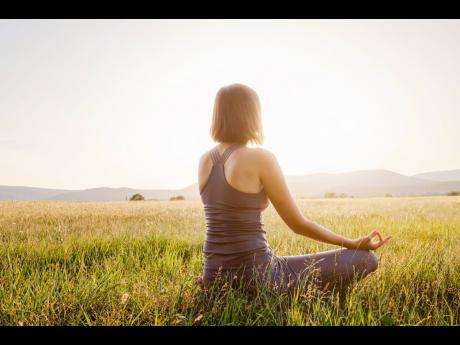Meditation: Practising it with eyes open or closed?
Many people wonder whether it is better to meditate with eyes open or closed. To answer this, it is important to understand the role our eyes play. While our eyes help us view the external world, they also serve as a major source of information for our minds.
Everything we see through our eyes gets processed and stored in our brains, making them a significant input channel for our mental state. Thus, the way we use our eyes during meditation can have a profound impact on our practice.
CLOSED EYES
Closing your eyes during meditation helps you to disconnect from the outside world. This disconnection can make it easier to journey inward and calm your mind. When you shut your eyes, you reduce the visual input that constantly stimulates your brain and mind. This helps you relax more deeply and potentially ease you into a calmer state.
However, closing your eyes also means that any mental images or memories stored from before can become more vivid. For many, this results in an increase in mental chatter and anxiety. Sometimes, this distraction can make you feel like you are not able to settle your mind and body. Additionally, the relaxation you feel with your eyes closed can lead to dozing off rather than being aware effectively.
OPEN EYES
In meditating with eyes open, the connection with the outside world remains, which can lead to more distractions. External noises and sights might pull your attention away from your meditation practice. However, settling your eyes on a specific point allows you to separate the seer from the scene and the seen.
Training your mind to meditate with open eyes teaches you to get back the authority to redirect thoughts on the right path and gain back calmness despite external distractions. This method can be particularly useful in everyday situations while interacting with people where closing eyes to bring calmness isn’t an option.
WHICH METHOD TO CHOOSE?
For beginners, starting with open eyes will be advantageous. This approach can prevent the common issue of falling asleep or getting lost in your own thoughts. As you become more efficient at relaxing and not losing your awareness, you can experiment with both methods. With consistent practice, you will likely find that you can effectively meditate with both eyes open or closed, depending on the demands of the situation. You can’t close your eyes and interact with others or be in meetings, yet you will still need to pause for moments and realign yourself.
Ultimately, the key is regular practice and finding what works best for you according to the demands of the scene. Consistency in your practice should be the aim.
Courtesy: Rajyoga Meditation Centre, Kingston (meditation courses and counselling are offered free of charge). Get in touch via email: bkmeditation.jam@gmail.com or WhatsApp: 876-853-7848. Follow them on Instagram: rajyoga_meditation_jamaica

